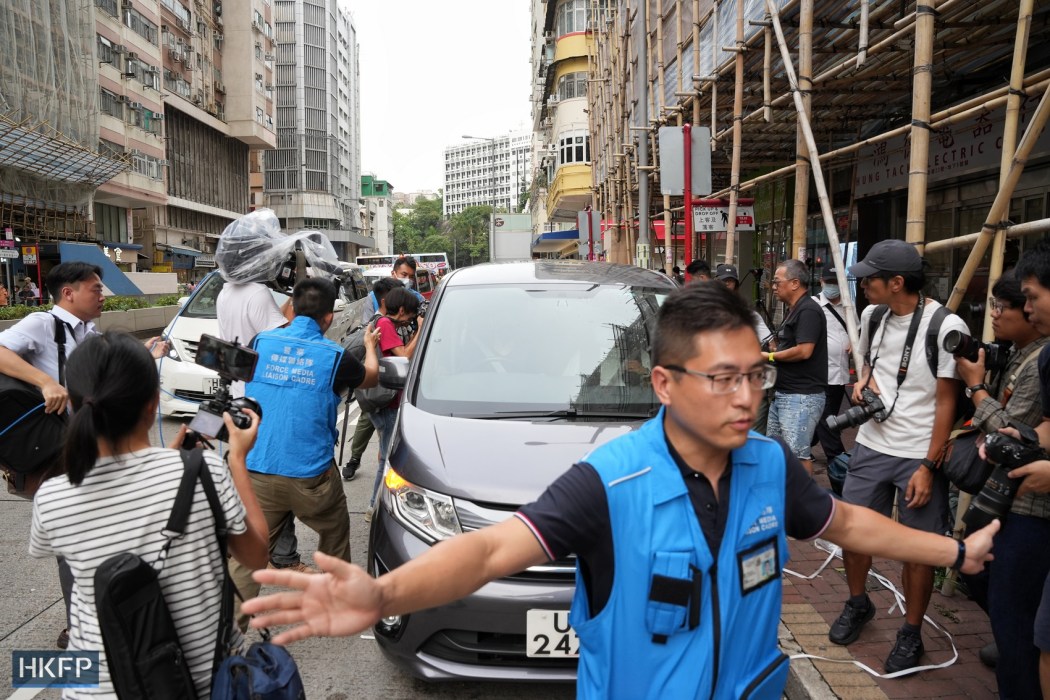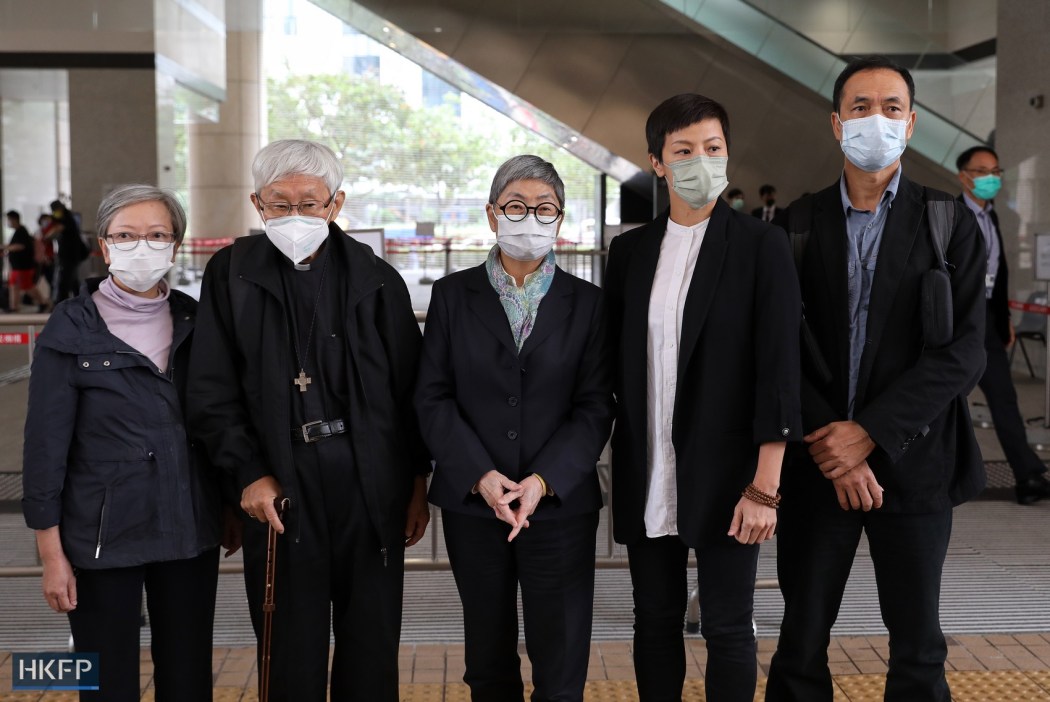Ten people linked to a defunct fund set up to help Hong Kong protesters during the 2019 anti-extradition bill unrest have been arrested by national security police.

Four men and six women were arrested on suspicion of “conspiring to collude with a foreign country or with external elements to endanger national security” and inciting a riot, police confirmed in a statement on Thursday.
According to the force’s investigation, the 10 – aged 26 to 43 – were suspected of conspiring with the 612 Humanitarian Relief Fund to “accept donations from foreign organisations, and provide financial assistance to organisations that support overseas fugitives or advocate for imposing sanctions on Hong Kong.”
“The police, acting in accordance with a court order, searched the arrestees’ places of residence and work, and seized relevant documents and electronic communication devices,” the statement in Chinese read.

Police added that the 10 had been detained pending investigation, and that further arrests were not ruled out.
A person with knowledge of the matter confirmed that Bobo Yip was among those arrested early on Thursday morning. The source told HKFP the pro-democracy activist was arrested at 6 am in Tai Wai.
Yip was taken to a Catholic bookstore in Yau Ma Tei on Thursday afternoon as police seized evidence. Yip was a former secretary of the Justice & Peace Commission of the Hong Kong Catholic Diocese.

Staff at the bookstore told journalists that police took two computers.
HKFP has reached out to those associated with the defunct 612 Humanitarian Relief Fund for comment.
This is not the first time that those connected with the relief fund have been apprehended. Five former trustees of the fund – Cardinal Joseph Zen, barrister Margaret Ng, ex-lawmaker Cyd Ho, scholar Hui Po-keung, and singer-activist Denise Ho – were arrested and found guilty last November over failing to register the fund as a society and fined up to HK$4,000 each.

The fund’s secretary, Sze Ching-wee, was also found guilty of the same charge.
The five trustees were originally arrested last May by national security police on suspicion of conspiring to collude with foreign powers, an offence under the Beijing-imposed national security law. The five were released on bail and no charges have so far been laid.
Sze was arrested last November over the same charge. He was also granted bail.
Ho told HKFP that her four fellow former trustees were not among those arrested on Thursday morning.

Protests erupted in June 2019 over a since-axed extradition bill. They escalated into sometimes violent displays of dissent against police behaviour, amid calls for democracy and anger over Beijing’s encroachment. Demonstrators demanded an independent probe into police conduct, amnesty for those arrested and a halt to the characterisation of protests as “riots.”
In June 2020, Beijing inserted national security legislation directly into Hong Kong’s mini-constitution – bypassing the local legislature – following a year of pro-democracy protests and unrest. It criminalised subversion, secession, collusion with foreign forces and terrorist acts, which were broadly defined to include disruption to transport and other infrastructure. The move gave police sweeping new powers, alarming democrats, civil society groups and trade partners, as such laws have been used broadly to silence and punish dissidents in China. However, the authorities say it has restored stability and peace to the city.
Support HKFP | Policies & Ethics | Error/typo? | Contact Us | Newsletter | Transparency & Annual Report | Apps
Help safeguard press freedom & keep HKFP free for all readers by supporting our team
























